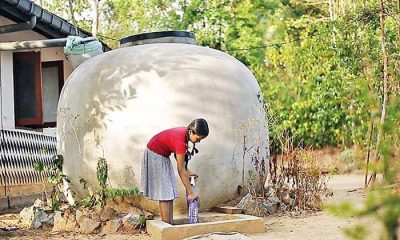News
Rainwater harvesting can revolutionises access to clean water in Sri Lanka – LRWHF

If a family with four members switch to rainwater harvesting each family members will have access to about 130 litres of water a day, and the water will be free following the initial investment to establish a rainwater harvesting system,
Tanuja Ariyananda of the Lanka Rain Water Harvesting Forum (LRWHF) said during a recent seminar organised by the Institution of Engineers Sri Lanka (IESL).About 40 percent of Sri Lankans still depend on wells, springs and other natural sources to meet the daily water requirement, she said.Given climate change these individuals may face problems accessing quality water in the future, she said.
“There has been a great interest in this system for the past 30 years. Now around the world there are about 160 million people who benefit from this system. They use this for domestic consumption,” she said.
Ariyananda said rainwater harvesting is important to Sri Lanka because water stress is growing due to human activity, urban development, pollution, etc. Droughts and floods have both become more frequent and both affect access to clean water, she said.
“Sri Lankans in many parts of the country can benefit from rainwater harvesting. This can benefit people in arid and semi-arid areas as well as those living in high elevation. It will also help people who use ground water of poor quality. We must not forget that some researchers link arsenic and fluoride in ground water to CKDu,” she said.
Most Sri Lankans are now crippled with high cost of living and rainwater harvesting saves money by reducing the water bill by up to 60 percent. It can also save the electricity bill by reducing the need to operate water motors, etc., she said.
Ariyananda said 60 percent of the rain that falls in the wet zone of the country is wasted as run off. The number is 40 percent in the dry zone, she said.She added that Sri Lanka has about 50,000 rainwater harvesting systems installed.
Ariyananda said a resident of Colombo with a roofing area of 100 square metres can collect about 192,000 litres of rainwater in a year. The number if 147,200 litres of rainwater for Kandy, 102,400 litres of rainwater in Anuradhapura, 83,900 litres of rainwater in Hambantota, 98,400 litres of rainwater in Jaffna and 300,000 litres of rainwater in Ratnapura, she said.
“If we take the case of Colombo and if we assume there are four people in the family, we can collect about 130 litres of water per person per day. This probably exceeds the daily requirement of a person,” she said.
Ariyananda said there are about 340 schools in Colombo and that the average roof area of a school is 1,000 square metres. The annual rainwater that can be collected by the Colombo schools is 548,800 cubic metres. If we calculate the value of water at 60 rupees a cubic meter, it comes to 32,928,000 rupees,” he said.
She added that some Sri Lankans are concerned about the quality of rainwater. A WHO study in 2017 found that the quality of harvested rainwater is second only to piped water. The quality of harvested rainwater is better than water from bore holes, protected springs and dug wells, according to the WHO research.
Ariyananda said a private higher education institution in Malambe recently started harvesting rainwater from a roof area of 5,525 square meters and that the collected water was adequate to meet 75 percent of the total water demand of the university.
“Imagine the savings this establishment made,” she said.
She said that there is a high initial cost to set up a rainwater harvesting system. The initial cost may be daunting, especially if someone is from a poor community.
“However, the state spends about 1.5 million rupees to give a water connection. But we can build a rainwater harvesting system for Rs 200,000 rupees. Then the household gets free water afterwards. The state can save money by giving rainwater harvesting systems to people,” she said.
Latest News
It is our collective responsibility to build a nation grounded in unity and strength – President
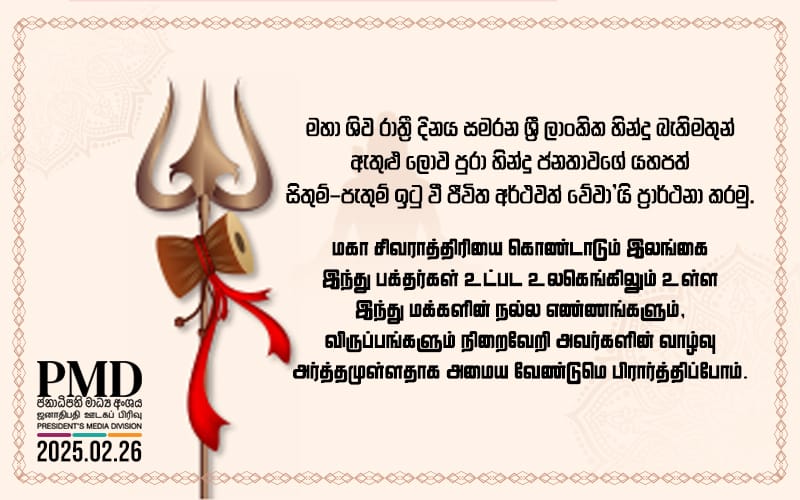
President Anura Kumara Disanayake in his Maha Shiva rathri message said that it is our collective responsibility to build a nation grounded in unity and strength.
The full text of the message issued by the President’s media division:
Maha Shiva Rathri is a sacred and joyous occasion celebrated by Hindu devotees across the world in reverence of Lord Shiva. This divine night marks the celestial union of Lord Shiva and Goddess Parvati, as well as the powerful Tandava, Shiva’s cosmic dance of creation and destruction. It symbolises the triumph of wisdom over ignorance, dispelling the darkness of illusion and lighting the path to enlightenment.
On this auspicious night, Hindu devotees observe fasting and engage in spiritual practices, praying for the darkness of ignorance to be replaced by the radiance of wisdom. It is also a time to seek divine blessings for prosperity, peace and fulfilment in life.
The union of Shiva and Parvati is a profound representation of knowledge and power coming together. It reminds us that breaking free from the illusions of division allows us to embrace the truth with open eyes. Today, as we stand at the dawn of a new era, this message is more relevant than ever. Let us tear down the barriers that have kept us apart for generations and unite as one, casting aside discord and embracing togetherness. This is a moment to nurture interfaith harmony, celebrate our diversity and move forward with love and mutual respect, dedicating ourselves to the progress of our beloved motherland.
As we journey towards a brighter future, it is our collective responsibility to build a nation grounded in unity and strength. We are stepping into a time of transformation, embracing political, economic and social renewal, shaping a future that holds promise and hope for all.
On this sacred night, as the glowing lamps of Maha Shiva Rathri illuminate our surroundings, let them also illuminate our hearts, guiding us with unwavering faith along the path we have chosen. Let us walk forward together, hand in hand, in the spirit of peace, unity and shared prosperity.
News
USD 900,000 paid monthly for three unused SriLankan aircraft– Dy. Finance Minister
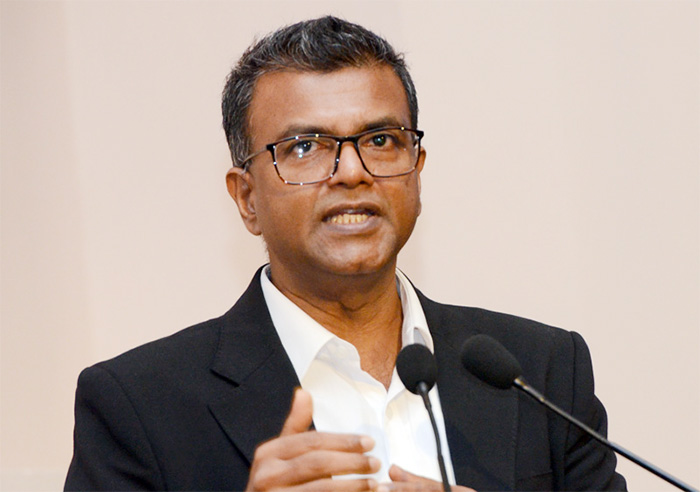
By Saman Indrajith
Finance and Planning Deputy Minister Dr. Harshana Suriyapperuma told Parliament yesterday (25) that SriLankan Airlines was in debt due to political interference under previous governments.
Answering a question raised by Anuradhapura District SJB MP Rohana Bandara, Dr. Suriyapperuma said that such interference had resulted in an ongoing case in international courts.
Dr. Suriyapperuma stated that SriLankan Airlines had earned notoriety for corruption not only here but also abroad.
“Currently, there is an ongoing case in an international court over claims that commissions were sought in respect of the purchase of aircraft. Aircraft have been leased at exorbitant rates, far beyond prevailing market rates,” he said, adding that the actions and decisions of past regimes over the last few decades regarding SriLankan Airlines must be taken into account when examining its debt.
Outlining the measures taken by the government to tackle the staggering debt, the Deputy Minister of Finance said that a five-year programme would be implemented from 2025 to 2030.
Dr. Suriyapperuma explained that despite the allocation of Rs. 20 billion from the 2025 Budget for SriLankan Airlines, the funds would not be utilised for the airline’s operational expenses. Instead, the management had been tasked with transforming it into a self-sustaining entity. Discussions had already begun with relevant stakeholders to restructure the debt, which includes loans obtained in US dollars.
Dr. Suriyapperuma revealed that SriLankan Airlines had been paying USD 900,000 per month in installments for three aircraft that had remained unused for several years. He added that the national carrier currently owned a total of 22 aircraft and employed 3,194 staff members in its main airline operations, along with 2,862 employees in its strategic business units.
Dr. Suriyapperuma also highlighted that the Ministry was currently evaluating those plans, with the expectation of achieving operational profitability and securing government support within the five-year period.
Suriyapperuma assured that measures would be taken to address SriLankan Airlines’ debt without burdening the public.
News
NPP govt. continues ban on Tamil organisations
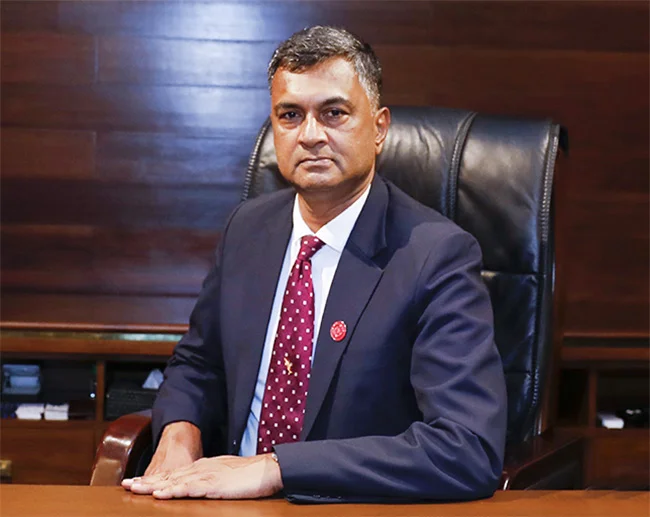
… Easter Sunday carnage suspects among them
The government has issued a gazette extending the ban on several Tamil diaspora groups, alleging they supported “terrorism-related activities,” The Tamil Guardian has reported.
The gazette, signed by Defence Secretary Air Vice Marshal (retd.) Sampath Thuyyakontha, declared that these organisations have “repeatedly provided financial support for terrorism.” As a result, their financial and economic assets remain frozen, and Sri Lankans are prohibited from having any contact with them. Those that do risk being arrested.
The list also reaffirms the ban on 222 individuals allegedly linked to terrorism.
The organisations blacklisted by the Sri Lankan government include:
* Liberation Tigers of Tamil Eelam (LTTE)
* Tamil Rehabilitation Organisation (TRO)
* Tamil Coordinating Committee (TCC)
* World Tamil Movement (WTM)
* Transnational Government of Tamil Eelam (TGTE)
* World Tamil Relief Fund (WTRF)
* National Council of Canadian Tamils (NCCT)
* Tamil Youth Organisation (TYO)
Other organisations listed include several linked to Islamic groups, such as the National Towhead Jema’ah (NTJ) and the Sri Lanka Islamic Student Movement (SLISM).
The Tamil Guardian reported that successive Sri Lankan governments have used terrorism laws to ban Tamil organisations that continue to function openly and legally in the United States, United Kingdom, Canada, and throughout Europe. This ban, however, stifles links between these diaspora organisations and Tamils, making it a criminal offence for Sri Lankan citizens to maintain contact with them.
The reposition of the ban follows a pattern seen in previous years. In 2024, Sri Lanka renewed its prohibition of Tamil diaspora organisations, days after India extended its own ban on the LTTE. The move was widely condemned as politically motivated and an attempt to justify Sri Lanka’s military presence in the “Tamil homeland”.
-

 Business2 days ago
Business2 days agoSri Lanka’s 1st Culinary Studio opened by The Hungryislander
-

 Sports3 days ago
Sports3 days agoHow Sri Lanka fumbled their Champions Trophy spot
-
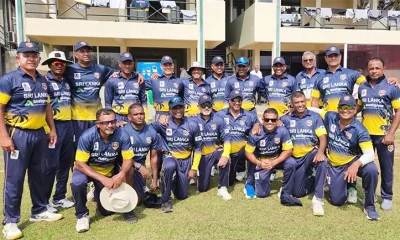
 Sports6 days ago
Sports6 days agoSri Lanka face Australia in Masters World Cup semi-final today
-

 News6 days ago
News6 days agoCourtroom shooting: Police admit serious security lapses
-

 News6 days ago
News6 days agoUnderworld figure ‘Middeniye Kajja’ and daughter shot dead in contract killing
-
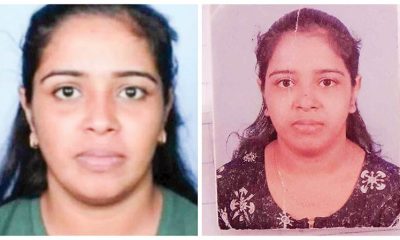
 News5 days ago
News5 days agoKiller made three overseas calls while fleeing
-

 News4 days ago
News4 days agoSC notices Power Minister and several others over FR petition alleging govt. set to incur loss exceeding Rs 3bn due to irregular tender
-

 Features3 days ago
Features3 days agoThe Murder of a Journalist


